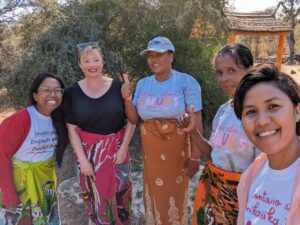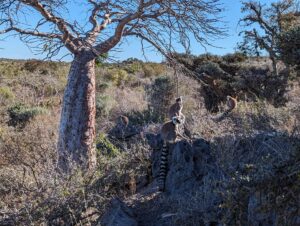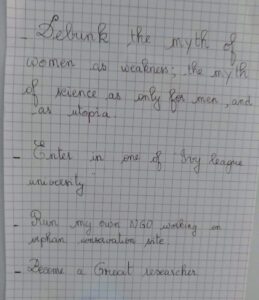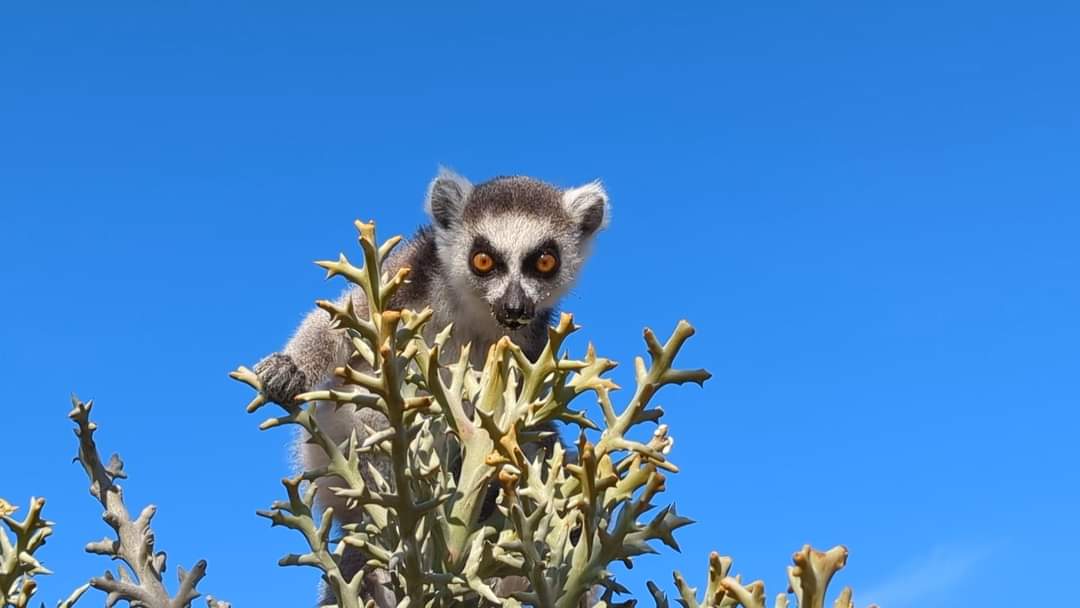Lemurs, science and women's empowerment: Q&A with Lemur Love
Written by Olivia Nater | Published: August 9, 2023
Through our Global Partners program, Population Connection supports a growing number of grassroots organizations around the world working to increase access to education, public health and family planning services. Their efforts make a vital difference in their local communities and represent the “final step” in our shared work to make the world a more just and sustainable place for everyone.
Get to know our wonderful partners in this Q&A series! In this post, Founder and Director of Lemur Love, Marni LaFleur, tells us about her organization’s work in Madagascar to protect lemurs, empower women and advance scientific research.
What prompted you to start your organization?

My love of lemurs! And fear of losing them. Anyone who works with wildlife needs to also be an advocate for their animals and the animals’ habitats. One of my life goals is to have the lemur troops (and their descendants) that I’ve studied for the last 15 years outlive me. For this to happen, the lemurs’ habitat needs to remain intact and local people need to see value in the lemurs’ existence. Also, sustainable conservation is not compatible with extreme poverty (such as is found in Madagascar), so protecting lemurs also means investing in local people.
What programs or projects are you currently working on?
Long-term field research with lemurs
We conduct field research and monitoring of ring-tailed lemurs at the Tsimanampesotse National Park in southwestern Madagascar. I’m interested in the evolution of female dominance in lemurs, in addition to understanding the impacts of climate change on the lemurs’ ecology. This location is of particular interest because it has the lowest primary productivity of any forest type in Madagascar. This means that the margin by which the lemurs survive the long annual dry season is small. The impacts of climate change are likely to impact these lemurs sooner than it will in more productive habitats.
Decolonizing science
Madagascar is a biodiversity hotspot and has high levels of endemism (species that are found nowhere else). Scientists from around the globe flock to see its unique flora and fauna. Unfortunately, Malagasy scientists have been largely excluded from research in their own backyards; more than 90% of publications about Madagascar’s biodiversity are authored by foreign scientists. It is essential that Malagasy voices are present in biodiversity conservation as they are the best equipped to understand cultural nuisances and the needs of people. We have a mentoring fellowship program that supports Malagasy early-career scholars who produce publishable manuscripts based on their own research. For many, this is a huge milestone that helps solidify their careers in biodiversity conservation.
Gender equity
Unfortunately gender inequity in Madagascar is high. The following are pervasive in Malagasy society: patriarchal attitudes, deeply rooted gender-based stereotypes, widespread sexual violence against women, and acceptance of violence against women with impunity of perpetrators. We are starting a project that aims to understand how gender-based violence impacts women’s education and career trajectories in Madagascar. Understanding the scope of this problem will help create a dialogue and implement change towards improved gender equity for Malagasy women.
Don’t underestimate the impact you can have on others. Everyone can positively contribute to the world, even if it is one lemur at a time.
–Marni LaFleur
What do you hope to achieve in the next five years?

We are currently working on our strategic plan for the next several years. Science, women, and lemurs will remain central to our programs. We aim to ensure the survival of lemurs in the wild, invest in the next generation of Malagasy conservationists, and improve the livelihoods of people living next to lemurs. Moreover, I aim to make fewer decisions and place more control in the hands of my Malagasy colleagues — this is the best way to ensure sustainable conservation and development in Madagascar!
What have been some of the greatest challenges you have faced?
Madagascar is one of the ten most economically poor countries on Earth. Millions of people do not have access to sufficient food resources, clean water, sanitation, or health care. The government is largely ineffective, and corruption is high. These conditions make biodiversity conservation very difficult and quite daunting. However, we’ve carved out a small niche wherein we can implement change and impact the lives of individuals.
What are you most proud of?

Malagasy women are told to be practical, get married, and have children. They are told that men are smarter, more capable, and deserve better. This is normalized within society. In 2019, Lemur Love hosted a career development workshop for Malagasy youth (mostly women) where we encouraged participants to ponder their “big dreams.” This was really challenging for some because their internal voice tells them they aren’t worthy of aspirations. Recently, I met with one of the participants from that workshop. She thanked me for encouraging her to “dream big” and said that this advice changed her life, in that she began to believe that she could be a scientist. She is now working on big data applications for conservation and has such a promising future. This warms my heart and gives me hope for the future!
Anything else you’d like to share with Population Connection members?
Madagascar is a wonderful place that is filled with life and joy! Much of this post has focused on negative aspects of the country, but there is also so much beauty and love in Malagasy culture. If you are able, travel to Madagascar. See the lemurs. Experience the forests. Hug the baobabs. Swim in the oceans. Taste the food. You will not regret it!
To learn more about Lemur Love, visit their website and follow them on Facebook, Twitter and Instagram!

